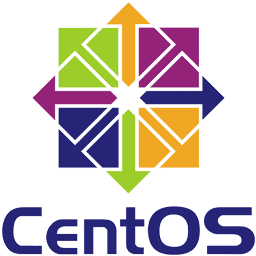
CentOS Download
CentOS is a free, open-source Linux-based operating system offering stability, security, and community support.
Software details
Software Description
CentOS stands for Community Enterprise Operating System. It is a free Operating System that focuses on providing open-source communities with a rich platform to build upon. The open-source operating system depends on the source code for Red Hat Enterprise Linux. The developer of this operating system is Red Hat, Inc from the US.
History
The initial release year of this Operating System is 2004. It releases two different Linux contributions which are CentOS Stream and CentOS Linux. While both are part of the Linux ecosystem, CentOS Stream is what will become Red Hat Enterprise Linux. On the other hand, CentOS Linux is a derivation from source code that Red Hat releases.
Versions
CentOS Stream is the upstream version as it is the platform for upcoming minor releases. It ensures that the source code is available for the community to have a place to test code and contribute to Red Hat Enterprise Linux (RHEL). The community together with partners of Red Hat and developers of the ecosystem can download and adapt codes. They can also make changes they can include in upcoming minor releases. CentOS Linux is the downstream mostly for deployment and development purposes. Also, it does not have a contribution model. However, CentOS Linux will soon end its lifecycle in 2024. Therefore, CentOS Stream will remain to be the only open-source development platform.
Features
There are distinctive features that CentOS unique. First the security of this operating system is top-notch in comparison to other Linux-based operating systems. It adds Security-enhanced Linux (SELinux) system to its security design. This enables the user to access controls for various policies and files. Also, the company releases regular updates after few years that lasts up to ten years. This ensures that there are little problems that occur because of software updates. The Operating System versions that this operating system use are very stable. Since the release period is long, the applications too do not require frequent updates.
Advantages
In addition, this tool is free. Since it is an open-source distribution, users can customize it and distribute freely. It is compatible with RHEL which allows admins to move between CentOS and RHEL with ease. This makes it more flexible without issues of compatibility. The Operating System repository of this operating system is large with many applications and tools. This makes it easy to install the software. Also, the admins can meet system requirements easily. The admins can customize the installations to specific requirements. This is to ensure that it meets the needs of their environments.
Best Practices
In order to ensure protection of critical data, it is crucial to implement proper backup strategies. In an event of unforeseen challenges such as hardware failure, the admins can recover data in backup storage. Another best practice for system administrators is enhancing security measures and hardening. They should ensure firewall configuration in order to secure the systems. The system admins should ensure there are regular updates and timely patching. This is to ensure that the system remains stable and secure. They should also monitor the system performance by checking resource usage and analyzing the metrics of performance. This will ensure that they keep the system at optimal performance.
Drawbacks
However, CentOS has shortcomings that discourage many users when using it. To begin with, this Operating System has a complex interface that poses challenges to users. Not all users might be literate enough to be able to navigate through it. Also, it is not compatible with many drivers. It is uneconomic because users must install drivers and codecs to use this software. Another challenge is the amount of time the company takes to update the distributions. It is time consuming and may not be convenient especially to busy users.
CentOS is a Linux based operating system that support community computing. It is open-sourced application with top notch security features. It receives frequent updates from development team.